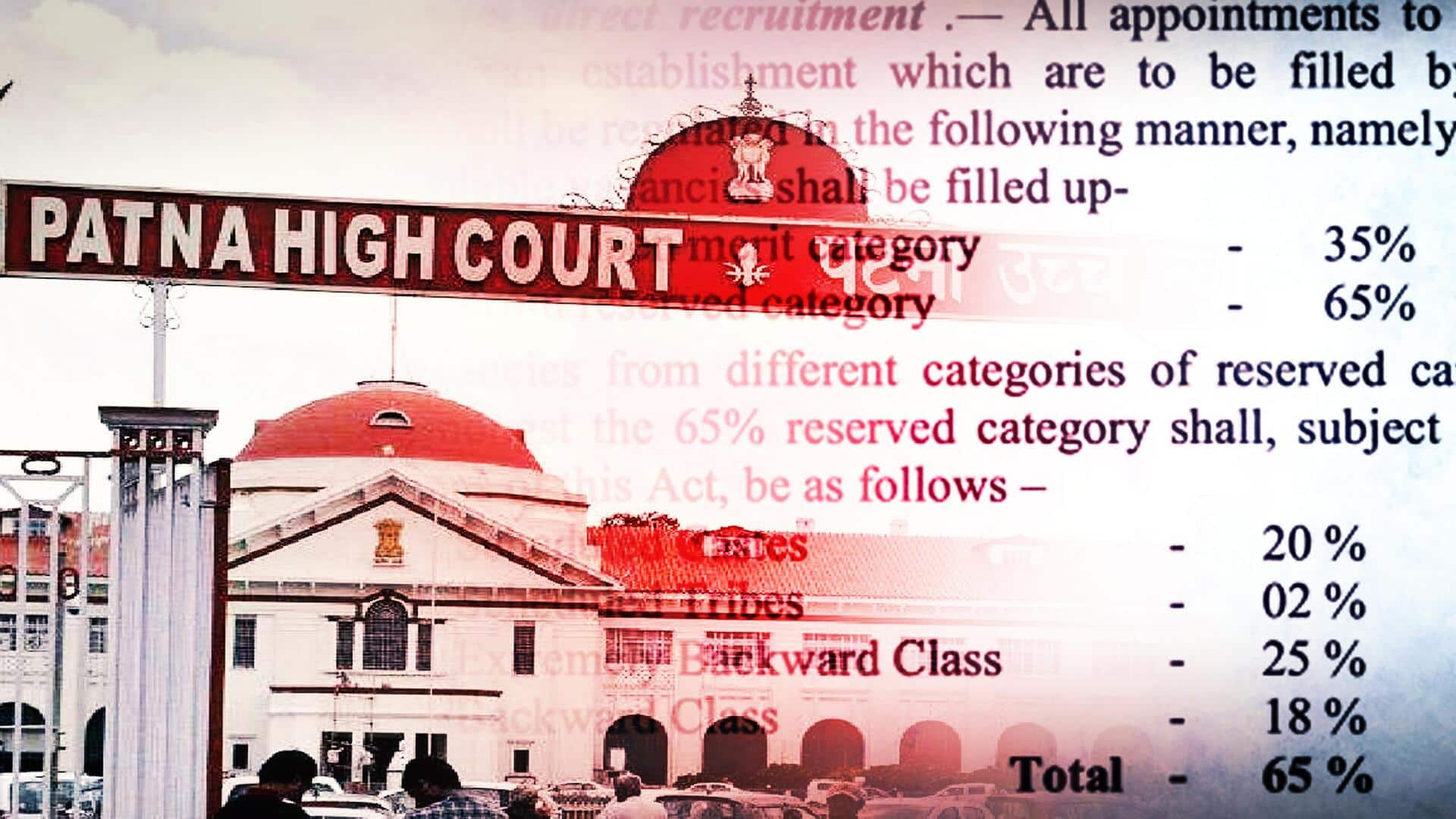
Patna HC scraps Bihar government quota hike to 65%
What's the story
The Patna High Court on Thursday overturned the Bihar government's decision to increase the reservation quota for backward classes, scheduled castes, and scheduled tribes in government jobs and higher educational institutions from 50% to 65%.
The verdict was delivered in response to a series of writ petitions challenging the constitutional validity of this quota increase.
The Bihar government had initially proposed this hike based on a caste survey conducted within the state.
Reservation breakdown
Details of the proposed quota increase
In November 2023, the Bihar government issued a gazette notification introducing two reservation bills aimed at increasing the existing quota from 50% to 65%.
The proposed increase would have resulted in a total reservation of 75%, including an additional 10% for economic and weaker sections.
The government planned to raise quotas for Scheduled Castes (SC) to 20%, Scheduled Tribes (ST) to 2%, Extremely Backward Classes (EBC) to 25%, and Other Backward Classes (OBC) to 18%.
Legal opposition
Petitioners challenge quota increase
The quota increase was met with legal opposition, as petitioners argued that the hike exceeded the state government's legislative powers.
They claimed that "the amendments are violative of the Supreme Court verdict passed in the case of Indira Sawhney versus Union of India whereby a maximum ceiling of 50% was laid down."
The petitioners also asserted that the quota hike was discriminatory and violated citizens' fundamental rights to equality as guaranteed by Articles 14,15 and 16.
Caste survey
Government's justification for quota increase
However, the Bihar government had justified the quota increase based on a caste survey conducted in the state.
The gazette notification had said, "On analysis of data collected during 'Caste based Survey 2022-23, it is apparent that large section of backward classes, schedule caste and schedule tribe need to be promoted for them to catch up to satisfy cherished aim in the Constitution of equality in opportunity and status."